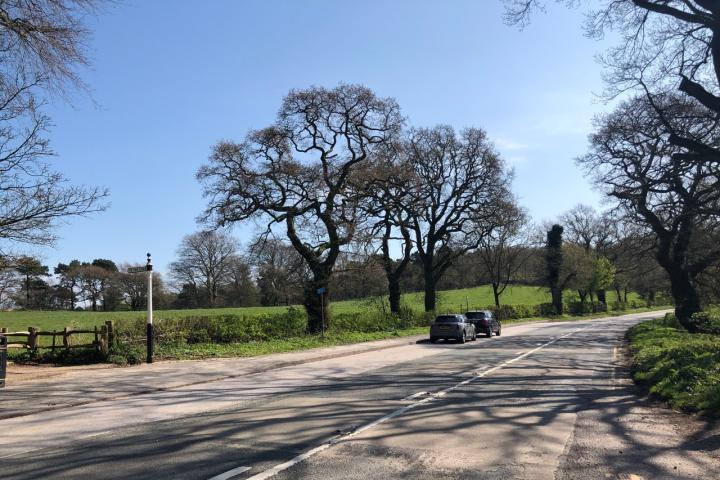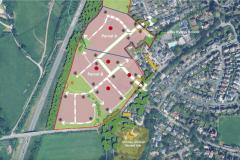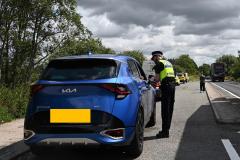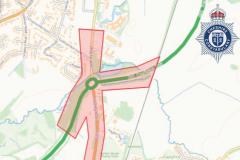
A lay-by on Macclesfield Road has been closed to discourage people from driving to The Edge during the current coronavirus lockdown.
Cheshire East Highways have stopped vehicles from using the lay-by at the top Macclesfield Road, adjacent to Castle Rock, at the request of the police as it has been packed with cars recently, whilst the National Trust car park is closed.






Comments
Here's what readers have had to say so far. Why not add your thoughts below.
Let’s see what the weekend brings!
Having lay-bys closed isn’t being bitchy. Quite simply put, the reason for unnecessary travel is to stop people using cars. If they don’t use cars they don’t have accidents, if they don’t have accidents they don’t take up a hospital bed and become a strain on the NHS for being dumb.
If it takes checking shopping bags or a total lockdown to beat this thing then bring it on. What we don’t need is idiots being a hinderence.
The police have the powers to stop people flauting the law but it appears they have chosen not to use them appropriately. Because they are incapable of using their powers properly they resort to closing lay bys and checking people's shopping. The danger with 'bringing on' this type of solution is that eventually you will curtail people's rights to the extent someone with a genuine need ends up being unable to access something they require and they will suffer as a consequence. At that point you'll have made the cure worse than the disease.
But thanks for putting me straight.
I can only presume it may be a "no mans land", falling between the N.T. boundary fence and Cheshire East highways. If that is the case, I would thought that the police might have "special powers" to act, given the present situation.
It has now been coned off but people are still using it and abusing the exercise guidelines by driving somewhere to exercise!
I think it's now generally accepted that driving to take exercise is not "Essential Travel" and that there is the possibility that you might be involved in a road traffic accident that requires NHS intervention at a time when their resources are stretched.
What can be spread on Farmland?
Traditional fertilisers include:
manure from farmyards and cattle sheds used during the winter. This often includes straw on which animals have been bedded and is stored up until conditions are right for it to be spread on land. Because it is fairly solid, it is usually spread from a 'muck spreader behind a tractor which 'throws' it across the land; and
slurry, a more watery form of manure, which is often stored in tanks until it can be spread on the land. Because it is liquid, it is transported in a tanker trailer and is either injected into the soil or is allowed to flow out in a controlled manner through nozzles close to the ground.
From intensive chicken farming comes 'hen pen', which is the deep bedding material used on the floors of chicken sheds. It is cleared out from time to time and has a noticeable smell of ammonia from bird droppings. The ammonia provides a rich source of nitrogen, which is a good fertiliser. It will sometimes contain some dead birds. It may be stockpiled within fields for later distribution and is spread in a similar way to manure.
Recent developments include:
sludge cake - This is the dried, treated solid material from the sewerage system and is rich in nutrients. Whilst the liquid from the sewerage system is treated and returned to rivers or the sea, the solid material is removed, dried and treated to give a material which looks a little like peat or flakes of chocolate. This can have a strong odour. It is often spread with lime; and
PAS110 Bio fertiliser - This arises from the anaerobic digestion of waste, including food waste which is now commonly collected separately from homes and businesses. The name relates to the British Standard which controls the processing of this material to ensure quality, safety and consistency in the end product. Liquid PAS110 material does have a strong odour.
https://www.google.com/amp/s/amp.theguardian.com/environment/2019/jan/14/muck-spreading-could-be-banned-to-reduce-air-pollution
Statistically you are far more likely to have an accicent requiring hospital treatment in the home. 2.7 million people go to hospital every year because of accidents in the home. Road accidents by comparison - 25,000. Total injuries on the road are 160,000; far below those in the home.
If you look at the facts, the irony of this arguament is that you are actually more likely to take up the resources of the NHS by staying at home than if you drive somewhere for exercise.